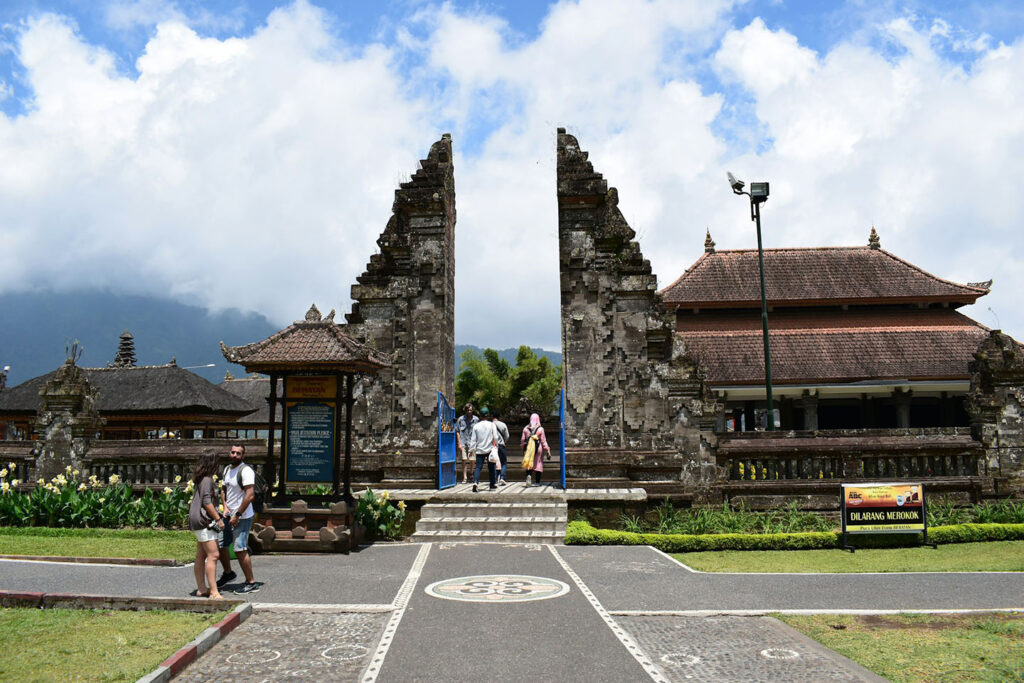Why Vaccinations Are Important for Bali Travel
Planning a trip to Bali, Indonesia? While this tropical paradise offers stunning beaches and rich cultural experiences, protecting your health through proper vaccination is crucial. As a traveller, understanding and preparing for Bali’s specific health risks should be a key part of your pre-travel preparations.
Bali presents unique health challenges for international visitors. Common health risks include exposure to vaccine-preventable diseases through contaminated food and water, mosquito bites, and contact with animals. The Indonesian climate and varying hygiene standards can increase your risk of encountering infectious diseases that are rare in many developed countries.
Official Travel Health Resources
Routine Vaccinations to Update Before Traveling
Tetanus, Diphtheria, and Pertussis (Tdap)
This combination vaccine protects against three serious bacterial diseases. Check if you need a booster dose, typically recommended every 10 years. Travel to rural areas of Bali may increase your risk of exposure, making this update particularly important.
Measles, Mumps, and Rubella (MMR)
With measles outbreaks reported in parts of Indonesia, ensuring your MMR vaccination is current is essential. Two lifetime doses are recommended for adequate protection. If you haven’t received both doses or are unsure, consult your travel doctor.
Polio
While Indonesia has made significant progress in polio prevention, maintaining your polio vaccination status remains important. Most travellers received this vaccine in childhood, but your doctor may recommend a booster, especially if visiting rural areas.
Recommended Vaccinations for Bali Travel

Hepatitis A
Hepatitis A vaccination is strongly recommended for all travellers to Bali. This virus spreads through contaminated food or water, making it a significant risk given Bali’s popular street food culture and varying sanitation standards. The vaccine requires two doses for long-term protection, so plan ahead for your Bali holiday.
Hepatitis B
Hepatitis B vaccination is particularly important for Bali travel. While many Australians receive this as part of their routine vaccinations, check if you need a booster. The virus can spread through blood, medical procedures, or unsterile beauty treatments – activities some travelers might encounter during their stay in Bali.
Typhoid
Typhoid fever, transmitted through contaminated food and water, is present in Indonesia. The typhoid vaccine is especially recommended if you’re:
- Planning to eat at local restaurants or street food stalls
- Staying in areas with limited access to clean water
- Traveling to rural areas of Bali
- Visiting for extended periods
Influenza
Consider getting the seasonal flu vaccine before your trip to Bali. While not specific to Indonesia, influenza can spread easily in tropical climates and crowded tourist areas. This vaccination is particularly important if:
- Traveling during peak tourist season
- Planning to visit crowded temples or markets
- Having underlying medical conditions
- Traveling during Indonesia’s rainy season
Additional Vaccinations to Consider
Japanese Encephalitis (JE)
Risk Areas in Bali
Japanese Encephalitis is present throughout Indonesia, including Bali. The risk is particularly high in rural and agricultural areas, especially near rice paddies and regions with poor drainage and standing water. Areas with pig farming activities and places experiencing heavy rainfall also present increased risk. The disease is more prevalent during monsoon season when mosquito populations surge.
Who Should Get Vaccinated
The JE vaccine is particularly recommended for travelers staying in Bali for more than a month or those planning to visit rural areas. Vaccination is also crucial if you’re traveling during monsoon season or engaging in extensive outdoor activities. Consider the vaccine if your accommodation doesn’t provide adequate mosquito protection, as this increases your exposure risk.
Rabies
Exposure Risks from Animals
Rabies remains a serious concern in Bali, with stray dogs being common throughout the island. Popular tourist areas, such as the Monkey Forest, present risks from monkey encounters, while cats and other mammals may also carry the virus. Even casual interactions with animals during outdoor activities can pose unexpected risks for travelers.
Post-Exposure Prophylaxis (PEP) Information
If bitten or scratched by an animal in Bali, immediate action is crucial. Start by thoroughly washing the wound with soap and running water. Seek prompt medical care at a reliable healthcare facility, as proper treatment is time-sensitive. Begin post-exposure treatment even if you’ve been previously vaccinated. Given that PEP availability can be limited in some areas of Bali, consider pre-travel rabies vaccination as a preventive measure.
Dengue Fever
Current Status in Bali
Dengue fever is endemic in Bali, with cases reported throughout the year. The risk significantly increases during the rainy season, which typically runs from October to April. Urban and semi-urban areas experience more cases, with transmission peaks occurring around dawn and dusk when mosquitoes are most active.
Prevention Measures (No Vaccine Available)
Since there’s no widely available vaccine for dengue fever, prevention focuses on avoiding mosquito bites. Effective protection includes using mosquito repellent containing DEET and wearing appropriate clothing that covers exposed skin. Choose accommodations with proper screening or air conditioning, and limit outdoor activities during peak mosquito hours. In rural or budget accommodations, using bed nets provides an additional layer of protection.
It’s essential to check current disease outbreaks in Bali before travel and secure comprehensive travel insurance that includes medical evacuation coverage, as dengue cases can sometimes require sophisticated medical care.
Malaria Risk and Preventive Measures
Areas of Bali with Malaria Risk
Main tourist areas like Kuta, Seminyak, and Nusa Dua have minimal malaria risk. However, the risk increases in rural and remote areas of northern Bali, particularly in regions away from coastal resorts. If your travel plans include visiting other parts of Indonesia such as Lombok or more remote islands, you may face higher malaria exposure risks in these locations.
Use of Antimalarial Medication
The need for antimalarial medication depends largely on your specific travel itinerary. While most tourists visiting popular Bali destinations may not require antimalarial drugs, your travel doctor may recommend preventive medication if you’re planning to venture into rural areas or other parts of Indonesia. The choice of antimalarial medication will depend on factors such as length of stay, medical history, and specific areas you plan to visit.
Important Health Requirements and Medical Information

Entry Health Requirements
Indonesia requires all visitors to complete the SATUSEHAT Health Pass, an electronic health declaration form, before arrival. Complete this form online prior to your flight check-in. Upon submission, you’ll receive a barcode containing your health and travel history, which Indonesian authorities will scan upon arrival.
Keep a digital copy and print a backup of your barcode. Note that travelers showing Mpox symptoms may be directed to hospital treatment on arrival.
Medical Facilities and Healthcare
Medical facilities in Indonesia generally operate at a lower standard compared to Australian healthcare services. While major tourist areas in Bali may offer better medical care, regional hospitals typically provide only basic facilities. Consider this when planning travel to remote areas and ensure your travel insurance covers medical evacuation if needed.
Medication Regulations
Indonesia maintains strict medication regulations that travelers must understand:
- Before traveling, check if your medications are legal in Indonesia through the official Indonesian Embassy website.
- Prescription medications, including ADHD medications, require careful consideration
- All cannabis-based products are strictly prohibited, including medicinal cannabis, oils, creams, hemp products, CBD, THC, and related items
- Even with a valid prescription from your home country, these substances can result in severe penalties, including arrest and imprisonment
- Purchasing prescription medications in Indonesia requires a valid prescription from an Indonesian doctor
Current Health Alerts
Dengue fever remains a significant concern throughout Indonesia, including popular tourist destinations. Recent reports from Australian health authorities indicate an increase in dengue infections among travelers returning from Bali, particularly from frequently visited tourist areas. This heightens the importance of taking proper precautions against mosquito bites throughout your stay.
Timing and Planning Your Vaccinations
When to Get Vaccinated Before Travel
Proper timing is crucial for effective vaccination protection. Ideally, schedule your first travel health consultation 6-8 weeks before departing for Bali. This timeline allows for:
- Completion of vaccine series that require multiple doses
- Development of adequate immunity before travel
- Flexibility to address any vaccine side effects
- Time to obtain any necessary vaccination documentation
Vaccine Schedules and Boosters Needed
Different vaccines require different timing and dosing schedules. Some vaccines, like Hepatitis A and B, require multiple doses spread over several weeks or months for complete protection. Your healthcare provider will create a personalized vaccination schedule based on your travel dates, previous vaccination history, and specific risk factors. Some travelers may need booster doses of vaccines received in childhood, while others might require accelerated vaccination schedules if travel is imminent.
Where to Get Vaccinated in Australia
Travel Clinics and General Practitioners
Travel vaccinations for Bali are available through specialized travel clinics and many general practitioners across Australia.
At Southgate Medical Centre:
- Location: Frankston/Mornington Peninsula area
- Specialist: Dr Martin Fox (MBBS)
- Book your pre-travel consultation today: Southgate Medical Centre
Travel health clinics offer comprehensive pre-travel consultations, with medical professionals experienced in international travel medicine. Your local GP can also provide many required vaccinations, though some specialized travel vaccines might need referral to a travel clinic. Always ensure your healthcare provider is up-to-date with current vaccination requirements for Indonesia.
Government Resources and Recommendations
The Australian Government provides extensive travel health information through the Smartraveller website and the Department of Health. These resources offer current advice about vaccination requirements, health risks in Bali, and travel health alerts. Regular updates ensure you have access to the latest health and safety recommendations for Indonesia, including any specific vaccination requirements or disease outbreaks.
Frequently Asked Questions (FAQ)
FAQs
While Indonesia doesn’t require mandatory vaccinations for direct travel from Australia, several vaccines are strongly recommended. These include routine vaccinations such as MMR and Tdap, plus destination-specific vaccines like Hepatitis A and Typhoid. Yellow Fever vaccination is only mandatory if you’re arriving from a country with Yellow Fever transmission. Your specific vaccination needs will depend on your travel plans, duration of stay, and personal health history.
It’s not recommended to rely on getting vaccinated after arriving in Bali. Many vaccines need time to develop immunity before providing protection, and the availability and quality of vaccines may vary in Indonesia. Additionally, some vaccines require multiple doses over several weeks. Always complete your vaccination schedule before departing Australia.
Schedule your travel health consultation at least 6-8 weeks before your trip to Bali. This timeframe allows for:
- Complete vaccination courses that require multiple doses
- Development of proper immunity before travel
- Management of any potential side effects
- Adequate time to obtain necessary documentation
- If you’re traveling sooner, still consult a healthcare provider as some protection is better than none.
Children traveling to Bali should be up-to-date with their routine vaccinations according to the National Immunisation Program Schedule. Additional travel vaccines may be recommended based on age and specific risk factors. Some vaccines have minimum age requirements or modified dosing schedules for children. Consult with a pediatrician or travel health specialist who can provide appropriate recommendations based on your child’s age and health status.
